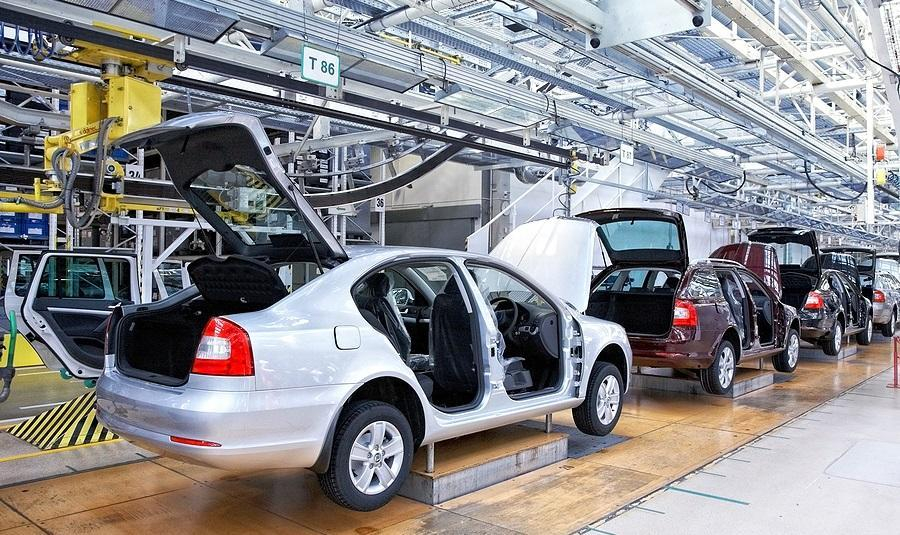Analysis

August 19, 2021
Chip Shortage Update: Toyota, GM and Ford Extend Outages
Written by David Schollaert
Toyota Motor Corp. is anticipating a reduction in automotive production in the range of 40-60% in North America. Except for Toyota’s San Antonio, Texas, plant, all North American vehicle assembly plants will be affected, a company spokesperson confirmed to Steel Market Update.
![]()
“Due to COVID-19 and unexpected events with our supply chain, Toyota is experiencing additional shortages that will affect production at most of our North American plants,” the spokesperson said. “While the situation remains fluid and complex, our manufacturing and supply chain teams have worked diligently to develop countermeasures to minimize the impact on production.”
The production reduction will result in a decrease of roughly 60,000 to 90,000 vehicles in August, and a projected reduction of 80,000 vehicles in September. The Japanese car manufacturer cautioned, however, that the “situation remains very fluid” and further disruptions could be seen. No impact to employment is expected at this time.
Toyota’s entire vehicle lineup will be impacted by the production cuts, except for the current generation Tundra and the new Tundra that’s set to launch later this year. Both are built at the automaker’s Texas assembly plant, the spokesperson noted.
The laundry list of semiconductor-chip-related disruptions wasn’t limited to Toyota.
General Motors Co. has extended downtime at many of its assembly plants into late September because of the ongoing chip shortage.
“These most recent scheduling adjustments are being driven by temporary parts shortages caused by semiconductor supply constraints from international markets experiencing COVID 19-related restrictions,” the Detroit-based automaker said. “Although the situation remains complex and very fluid, we haven’t taken any full-size SUV production downtime due to the global shortage of semiconductors and have taken minimal downtime at our full-size pickup truck plants. We remain confident in our team’s ability to continue finding creative solutions to minimize the impact on our highest-demand and capacity-constrained vehicles.”
GM’s assembly plant in Lansing/Delta Township, Mich., has extended its downtime an additional two weeks. The plant’s original two-week stoppage will now run for at least 28 days. Production is expected to resume on Sept. 6. The facility, which makes the Chevrolet Traverse and Buick Enclave SUVs, has been idle since Monday, July 19.
The automaker’s assembly plants in Spring Hill, Tenn., and its Ramos assembly plant in Mexico will both take two-week outages beginning Monday, Aug. 23, disrupting the production of the Cadillac XT5, Cadillac XT6, GMC Acadia and the Chevrolet Blazer until Sept. 6.
Ramos will take an additional two-week outage for its Chevrolet Equinox production during the weeks of Sept. 6 and Sept. 13. Chevrolet Equinox production has been down since the week of Aug. 16 and should resume the week of Sept. 20.
GM’s San Luis Potosi plant in Mexico, as well as its CAMI assembly plant in Canada, will be down for an additional two weeks. Both have been idle since July 19 and are now slated to resume on Monday, Sept. 20, leading to a nine-week outage. They had previously been scheduled to resume production on Monday, Aug. 30.
Both plants make the Chevrolet Equinox compact SUV. San Luis Potosi also makes the GMC Terrain compact SUV.
Also, GM will take a week of downtime beginning Aug. 23 at its Orion, Mich., facility, while the downtime for its Cadillac CT4 and CT5 production at the Lansing/Grand River, Mich., assembly plant will extend through the week of Sept. 13.
Orion’s production of the Chevrolet Bolt EV and Bolt EUV is expected to resume the week of Aug. 30. Grand River’s production of the Chevy Camaro hasn’t been impacted and the plant will continue to support limited Cadillac Black Wing production. Cadillac CT4 and CT5 production has been down since May 10 and is expected to resume production the week of Sept. 20.
Ford Motor Co. will be canceling its super shift at its Claycomo, Mo., plant scheduled for Aug. 21 and will halt production during the week of Aug. 23. The week-long outage is due to a semiconductor-related part shortage because of the COVID-19 pandemic in Malaysia, a company spokesperson told SMU, and will impact F-150 pickup production. The automaker’s onsite Transit production will not be affected nor will the F-150 production at its Dearborn, Mich., plant, the company said.
Both Daimler and Stellantis said they are running production at all their North American facilities this week.
Honda Motor Co. continues to manage supply chain issues related to several factors including the impact from COVID-19, congestion at various ports and the microchip shortage, the company said.
Nissan’s two-week production outage at its Smyrna, Tenn., factory is still expected to conclude the week of Aug. 30.
By David Schollaert, David@SteelMarketUpdate.com






